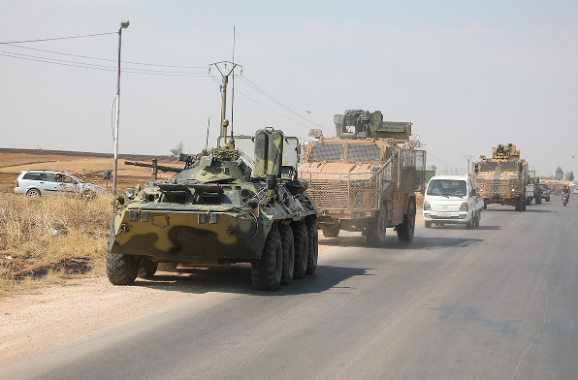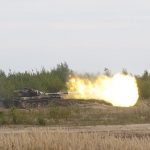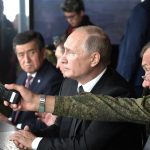
Russia Monitor is a review of the most important events related to Russian internal and external security, as well as its foreign policies.
Date: 29 August 2020
Russian Problems in Syria
Russia’s military presence on the mostly-Kurdish and U.S.-backed eastern side of the Euphrates river in northeastern Syria entails a grave risk, as evidenced by a recent collision between American and Russian armored vehicles in eastern Syria and the killing of a Russian general in jihadi ambush.

A Russian military vehicle was attacked on August 25 during a joint Russian-Turkish patrol in Syria’s Idlib region, injuring two servicemen. The incident occurred along the M4 highway linking Syria’s east and west. A similar attack against the joint patrol happened on August 17, also along the M4 motorway. The Russian military, however, is in far bigger trouble elsewhere in Syria. Russian service members marched east of the Euphrates river after U.S. President Donald Trump had ordered to withdraw troops from the area in October 2019, shortly before a Turkish offensive. About 500 U.S. service members are still in northeastern Syria; both armies sometimes get embroiled in some incidents. Several American troops were injured on August 25 during an altercation with a Russian military convoy near Dayrick, Syria. Spokespeople of both the Pentagon and U.S. Central Command, or CENTCOM, slammed Russia for aggressive behavior that injured U.S. troops. Though back in 2019, the United States and Russia agreed to cooperate within what they named as a deconfliction zone to avoid extra tensions, some incidents occur from time to time between the two armies. Just a week before, an improvised roadside bomb had exploded 15 km from the city of Deir ez-Zor when a Russian military convoy was returning to its base after a humanitarian mission. Three Russian servicemen were wounded in the blast while one of them died. He was identified as Major General Vyacheslav Gladkikh, the deputy commander of the 36th Combined Arms Army and the first Russian general killed in Syria since 2017. A commander of the local pro-regime National Defense Forces is also believed to have been killed in the attack. A group of jihadi militants are thought to have planted the bomb, according to reports. There are still many IS insurgents occupying the desert area both south and east of Deir ez-Zor on the al Assad-controlled western side of the Euphrates river, who attack regime-affiliated service members.
Support Us
If content prepared by Warsaw Institute team is useful for you, please support our actions. Donations from private persons are necessary for the continuation of our mission.
All texts published by the Warsaw Institute Foundation may be disseminated on the condition that their origin is credited. Images may not be used without permission.

















